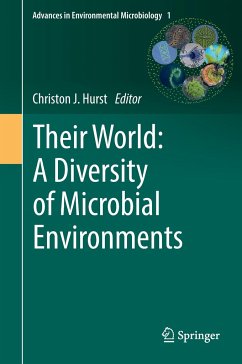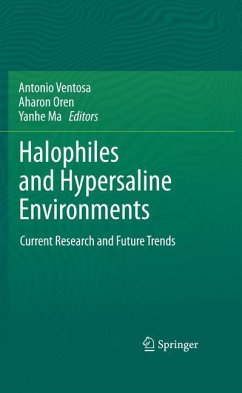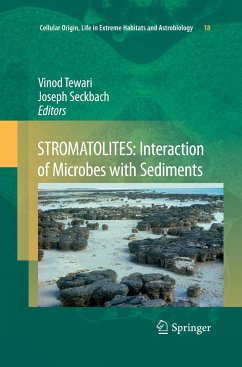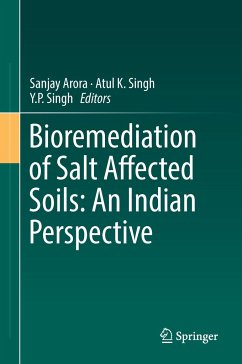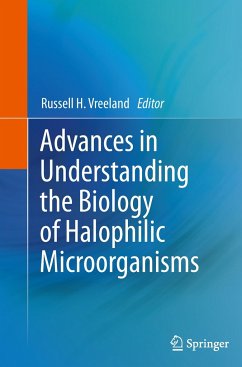
Advances in Understanding the Biology of Halophilic Microorganisms
Versandkostenfrei!
Versandfertig in 6-10 Tagen
113,99 €
inkl. MwSt.

PAYBACK Punkte
57 °P sammeln!
This book is designed to be a long term career reference. The chapters present modern procedures. This is a how-to-book with a difference. These chapters:- reveal the background information about working with salt loving organisms,- are loaded with information about how experiments are conducted under high salt,- provide information about analyses that work under these conditions and those that may not,- present a wide range of details from laboratory designs to equipment used and even to simple anecdotal hints that can only come from experience.Microbiological training focuses largely on the ...
This book is designed to be a long term career reference. The chapters present modern procedures. This is a how-to-book with a difference. These chapters:
- reveal the background information about working with salt loving organisms,
- are loaded with information about how experiments are conducted under high salt,
- provide information about analyses that work under these conditions and those that may not,
- present a wide range of details from laboratory designs to equipment used and even to simple anecdotal hints that can only come from experience.
Microbiological training focuses largely on the growth, the handling and the study of the microbes associated with humans and animals. Yet the largest proportion of the Earth's microbiota lives in saline environments such as the Oceans, saline deserts and terminal hypersaline environments. This need for salt can be intimidating for those interested in entering the field or for those interested in understanding how such research is accomplished.
- reveal the background information about working with salt loving organisms,
- are loaded with information about how experiments are conducted under high salt,
- provide information about analyses that work under these conditions and those that may not,
- present a wide range of details from laboratory designs to equipment used and even to simple anecdotal hints that can only come from experience.
Microbiological training focuses largely on the growth, the handling and the study of the microbes associated with humans and animals. Yet the largest proportion of the Earth's microbiota lives in saline environments such as the Oceans, saline deserts and terminal hypersaline environments. This need for salt can be intimidating for those interested in entering the field or for those interested in understanding how such research is accomplished.



